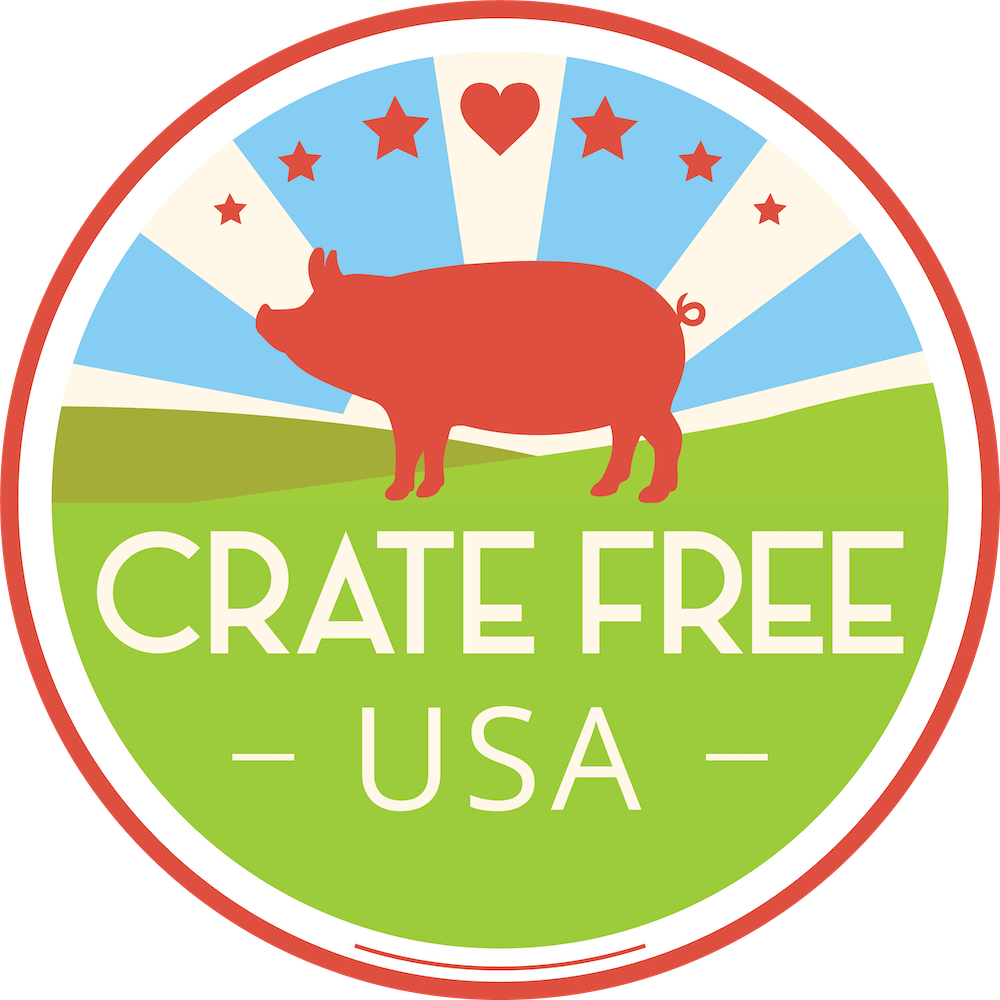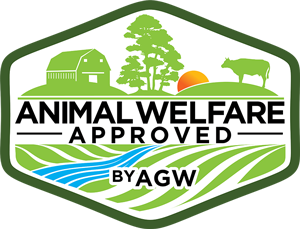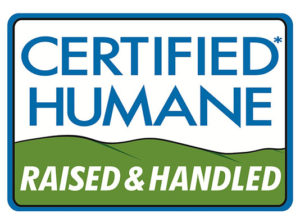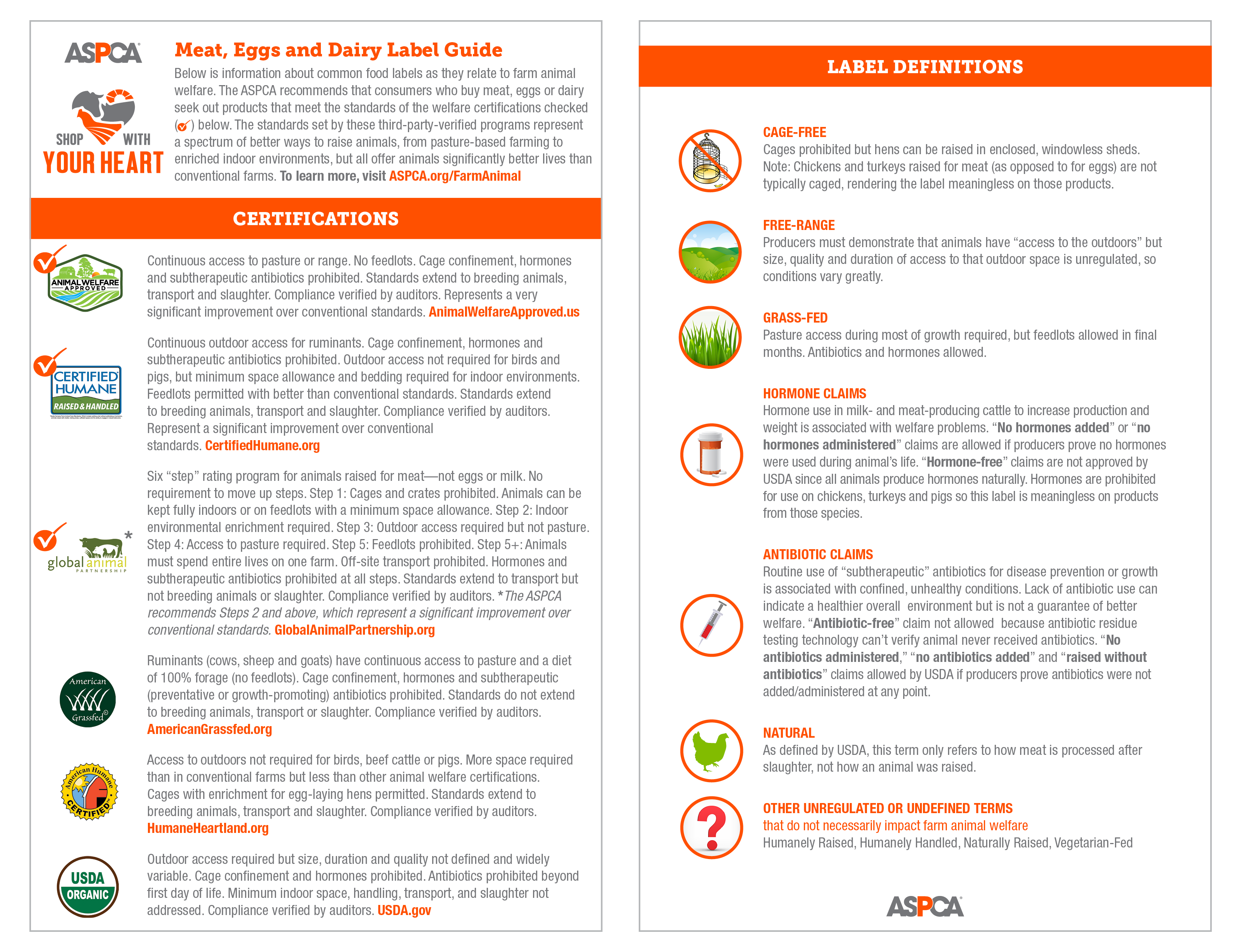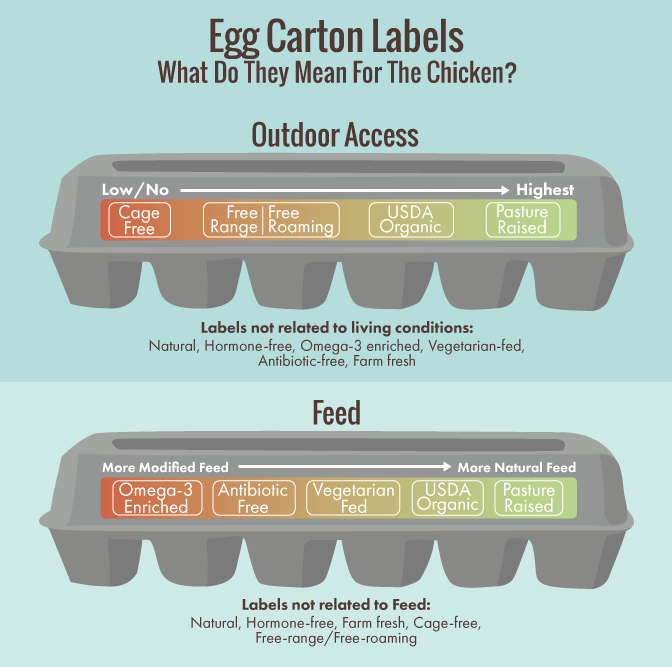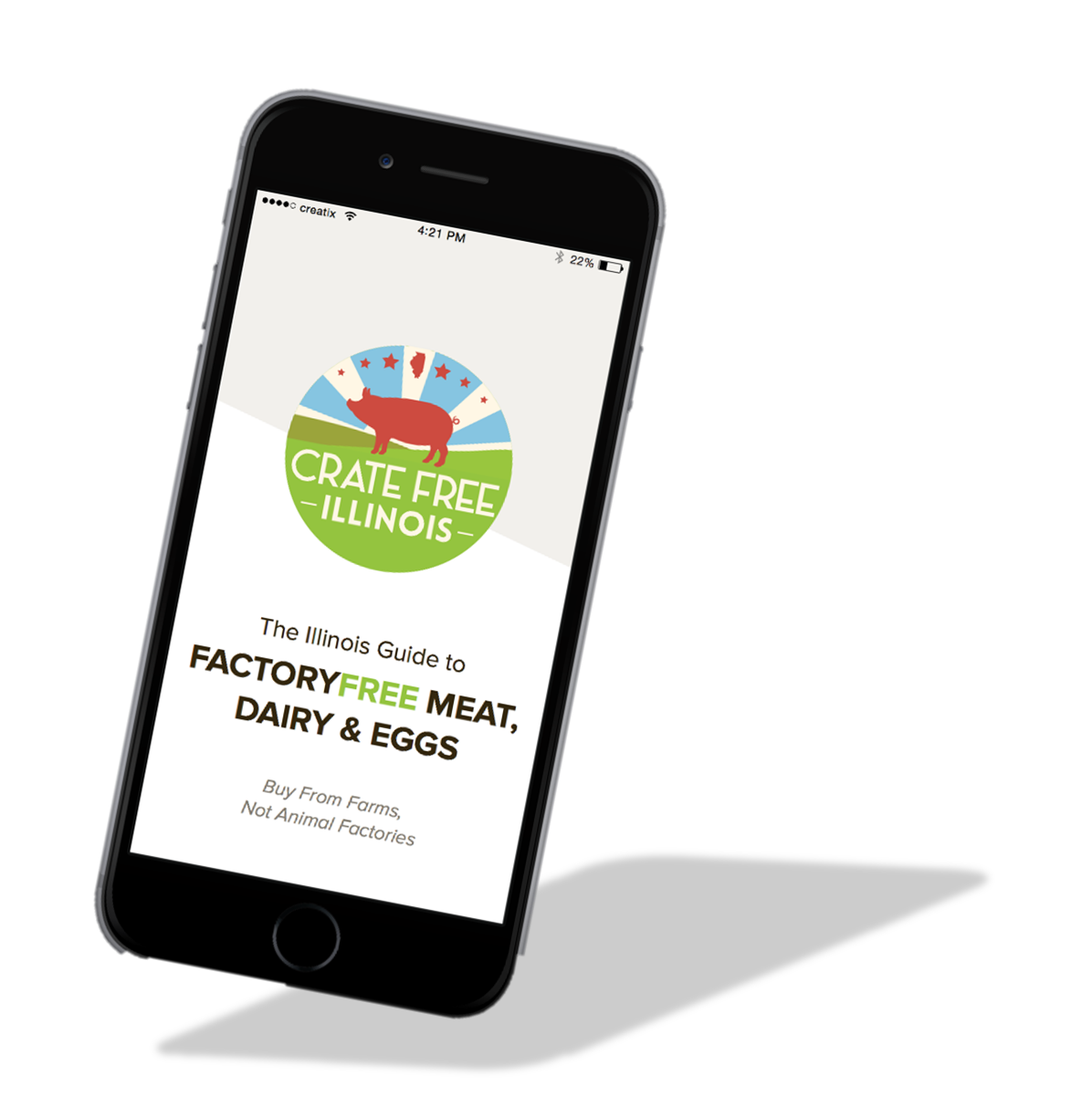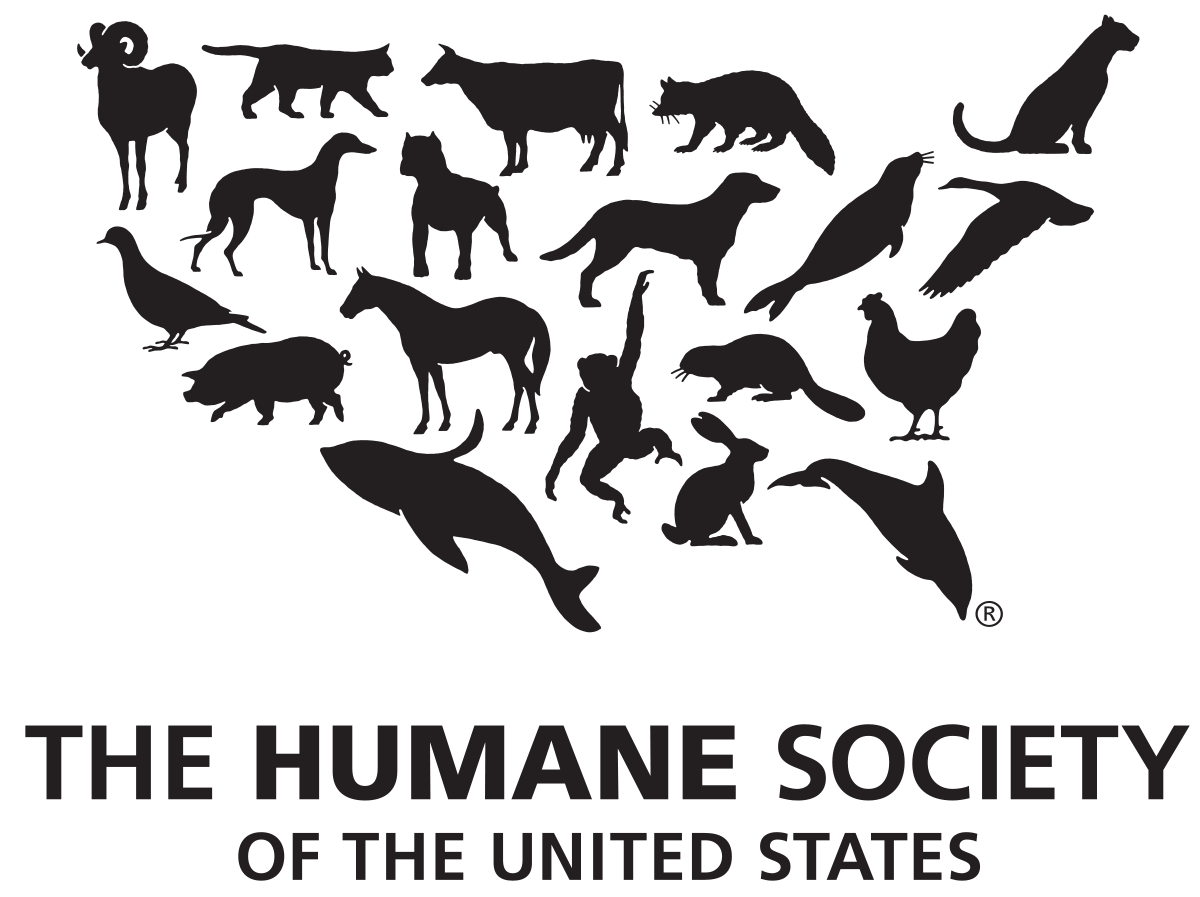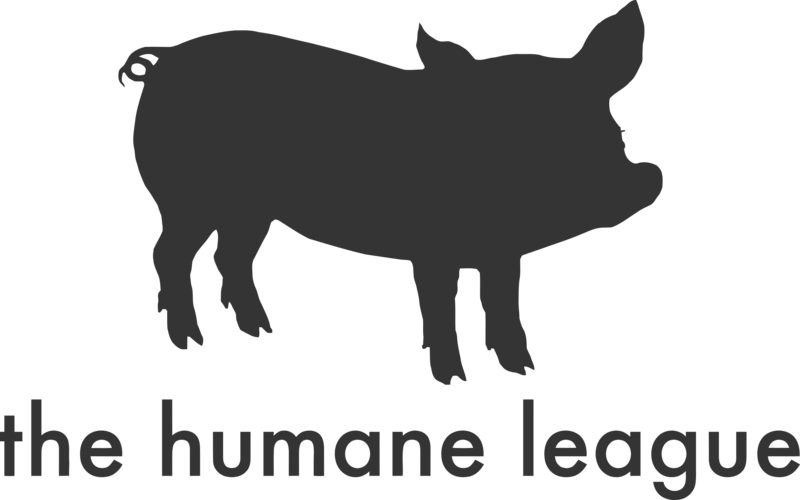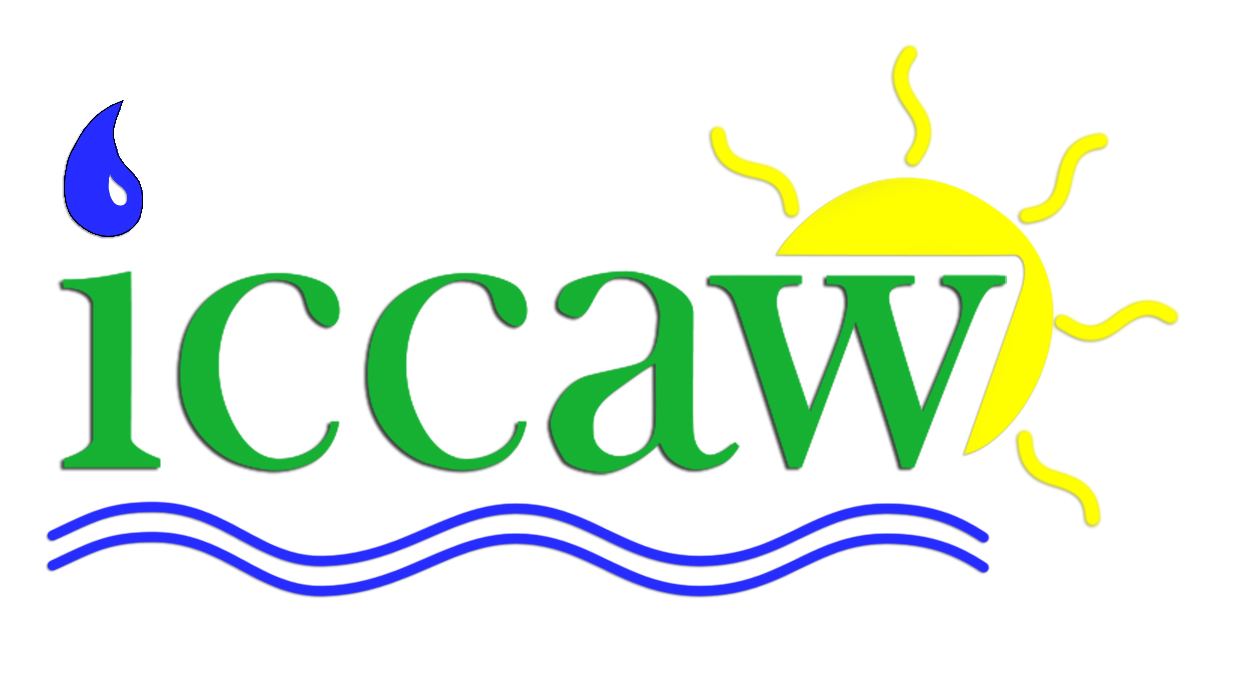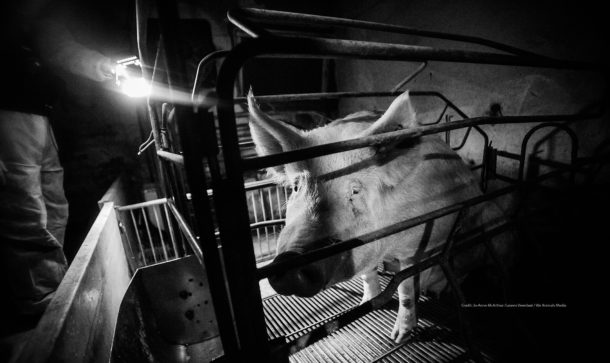How Can I Help?
- Support local farms
- Reject factory-farmed meat
- Eat fewer animal products – Try Meatless Mondays!
- Learn more about food labels
- Get Involved – Volunteer
- Contact your legislators
- Contact grocers and restaurants
- Talk to people about the issues
- Share information on social media
- Host screenings of documentaries like Food Inc., Cowspiracy, At the Fork, Eating Animals
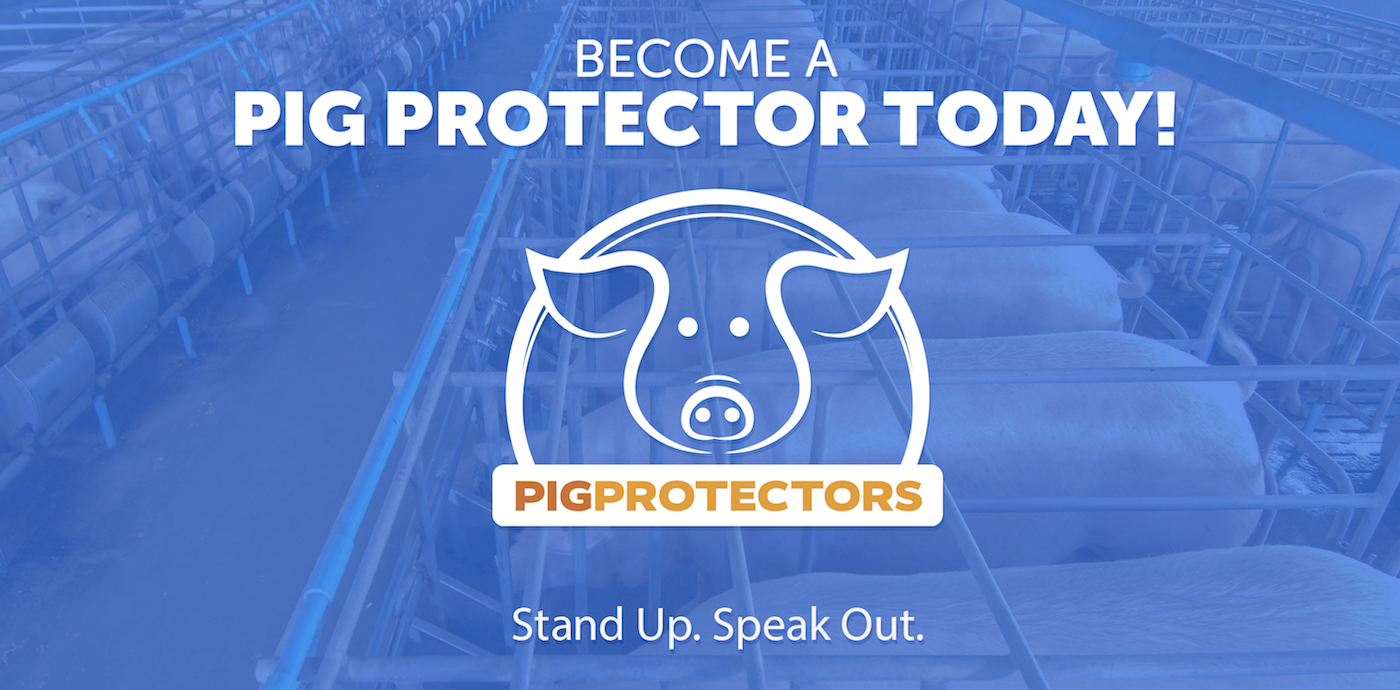
Join other online activists who are helping to end this cruel practice. Spending just a few minutes a month can help end a lifetime of confinement for millions of pigs.
Receive weekly emails with quick actions such as emailing, calling, and posting on social media.
Understand Terms and Labels
Animal Welfare Approved
Seen by many as the ‘leader’ of animal welfare labels, products carrying this label have been rigorously identified by non-profit A Greener World (AGW) as adhering to very high standards of animal welfare which ensures animals are:
- • Raised on pasture or range
- • Requires animals to be raised on pasture or range
- • Prohibits dual production
- • Awards approval only to independent farmers
- • Charges no fees to participating farmers
Certified Humane Raised and Handled®
According to non-profit Humane Farm Animal Care (HFAC) ‘When you see the Certified Humane Raised and Handled® label you can be assured that the food products have come from facilities that meet precise, objective standards for farm animal treatment. You can find Certified Humane® products in the U.S., Australia, Brazil, Canada, Chile, Hong Kong, and Peru.’ These standards include:
- • The producer meets our Animal Care Standards and applies them to farm animals, from birth through slaughter.
- • Awards approval only to independent farmers.
- • Animals are never kept in cages, crates, or tie stalls. Animals must be free to do what comes naturally. For example, chickens must be able to flap their wings and dust bathe, and pigs must have space to move around and root.
- • Animals must be fed a diet of quality feed, without animal by-products, antibiotics or growth hormones.
- • Producers must comply with food safety and environmental regulations.
- • Processors must comply with the American Meat Institute Standards (AMI), a slaughter standard written by Dr. Temple Grandin, a member of HFAC’s Scientific Committee.
Certified Organic
Products which are certified organic are seen as higher quality products which have been carefully vetted. However, only in 2024 did the USDA update it to include SOME animal welfare standards. According to Food and Water Watch it is ‘right now the most meaningful label on your food, in terms of upholding specific government requirements.’ For a product to be certified organic, it’s required to meet specific standards.
Under the New 2024 Regulations
Certified Farms Raising Broiler Chickens and Egg-laying hens must:
- • Meet specific indoor and outdoor space requirements, making sure the birds have ample room
- • Offer year-round access to the outdoors with soil and vegetation (not just hard surfaces such as concrete or gravel) and ensure all the birds can easily leave the barn at their will
- • Not use enclosed “porches” to count as outdoor space
- • Monitor and maintain safe ammonia levels (below 20 ppm), which can be harmful to both the birds and workers
Certified Farms Raising Cows, Pigs, Sheep and other Mammals Must:
- • Offer shelter that is large enough for the animals to move, stretch, and express natural behaviors
- • Offer access to the outdoors year-round
- • Provide pigs with rooting materials, a natural behavior pigs do to find food, obtain nutrients, cool off, and for comfort
- • Document and treat sick or injured animals, even if that means losing the animal’s organic status
- • Monitor and actively mitigate causes of lameness
The New Rule Also Explicitly Prohibits Low-Welfare Practices For Both Birds and Mammals, Such As:
- • Caging female breeding pigs in gestation and farrowing crates, which prevent pigs from walking and turning around for months at a time
- • Performing physical alterations that are widely considered painful and cruel, such as face-branding of cattle, teeth clipping of pigs, and induced molting of poultry birds.
- • Using inhumane methods of slaughter, including suffocation, hitting animals on the head, or crushing the neck
- • Exposing animals to extreme temperatures during transport
- • Transporting animals who are too sick or injured to walk
(Source: Compassion in World Farming)
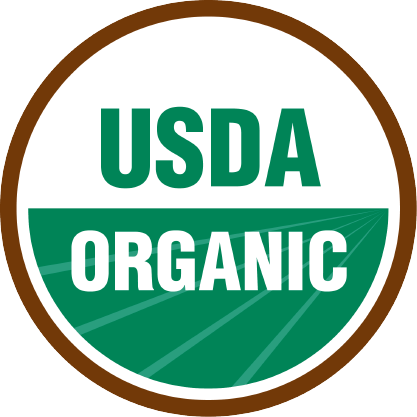
USDA Inspected
This label ONLY really relates to the quality of the products rather than anything to do with welfare practices. As stated by the Food and Water Watch:
- ‘A USDA inspection seal means that your food meets certain quality standards and has been inspected by USDA employees or company employees under USDA supervision to rank its quality.
- All USDA-inspected meat and poultry (the vast majority of meat in grocery stores) should have a USDA seal of inspection. Meat and egg labels with a grade (such as USDA Grade A beef or Jumbo eggs) are graded based on quality and size, not production methods, so this tells you nothing about welfare.
- Private certification programs also exist, but they vary in standards, and it’s a good idea to do some research on their standards.’
(source: foodandwaterwatch.org/about/live-healthy/consumer-labels)

Egg Labels
Like pigs, the large majority of chickens are subject to abuse and cruelty, therefore it is essential to understand the difference between the mostly non-regulated labels on packaging and what it means for the animal.
The Humane Society article on ‘How to Decipher Egg Carton Labels’ explains the different welfare certifications and terms in detail and serves as a great reference point.
Remember lots of food products like mayonnaise, cakes, cookies and quiches contain eggs. Unless the ingredients say ‘free-range eggs’ or ‘pasture raised’ they are likely to be from caged hens.
Cage-Free
- • Free space to roam (often crowded), but no access to sunlight
- • Allows beak cutting
- • Does not regulate feed
- • Does not regulate antibiotic use
Free-Range/Free-Roaming
- • Prohibits cages
- • Requires some access to outdoors (no living vegetation is required in the space)
- • Does not regulate feed
Pasture-Raised/Pastured (**Our pick)
- • Requires that hens get to hunt, peck and graze outdoors (on their natural diets)
- • Available at farmers market and some supermarkets
- • Not regulated or enforced
- • Pastured eggs have up to twice the amount of Omega-3s of factory-farmed eggs
Labels with NO RELEVANCE to animal welfare:
- • Vegetarian-fed
- • Natural
- • Farm Fresh
- • Fertile
- • Omega-3 enriched
- • Raised without Antibiotics
- • Pasteurized
- • Hormone-Free
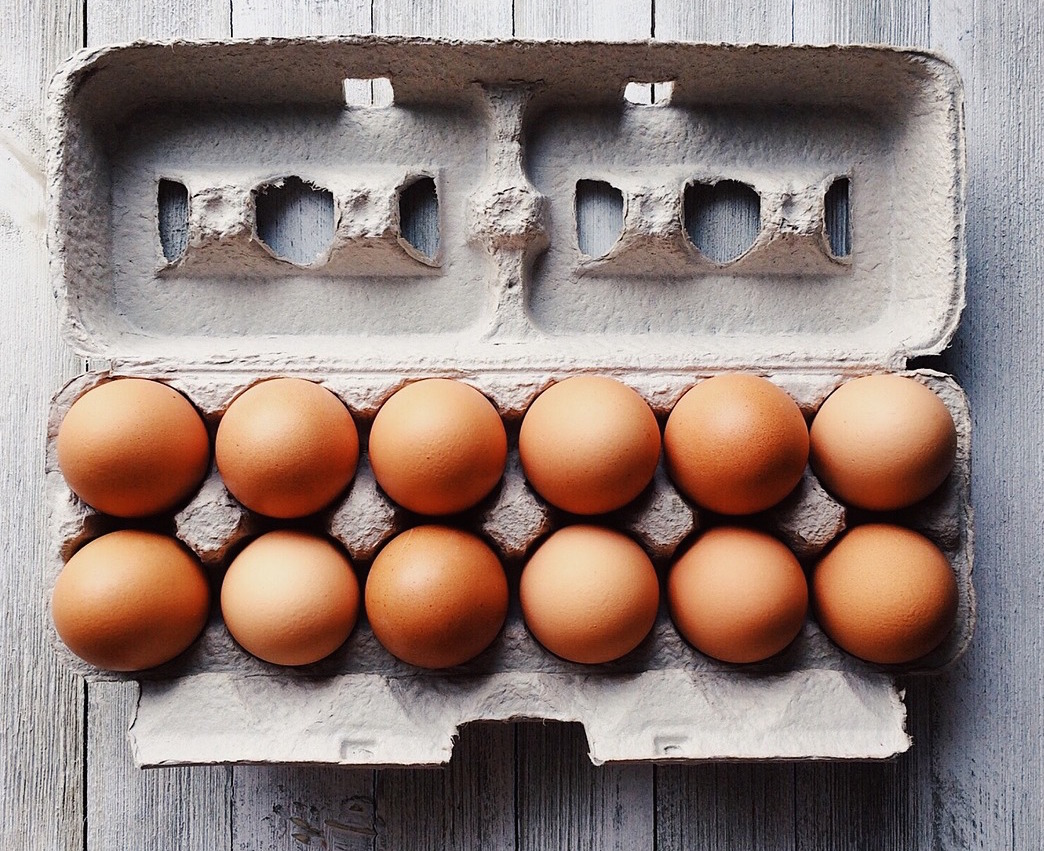
Crate Free USA
As the name of our organization suggests, this is a very important one for us at Crate Free USA! The crating of sows (female pigs) is a cruel, prevalent practice in which the mother pig spends the majority of her life in a tiny stall, on her side when pregnant and unable to even turn around. Not only are pigs denied the right to move around, but they but also their natural urge and desire to forage and socialize as they would naturally. Pigs are highly sociable and emotional animals which makes this even worse.
The good news is that about a dozen states in the USA have banned this outdated method and many mainstream organizations have agreed to end the use of this in their production chain. Let’s make the United States Crate Free!
We successfully petitioned Trader Joe’s to do this last year.
Articles & info about crates and companies transitioning to crate free:
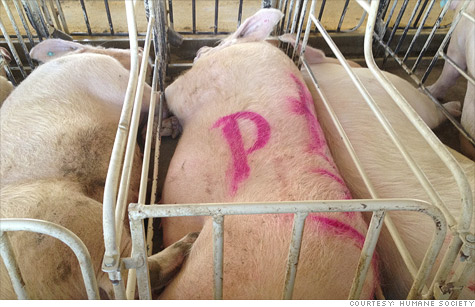
Source From Local and Humane Farms
Factory farmers are eager to advertise their advancements in things like nutrition, technology, and livestock management. Yet most consumers agree: This is no substitute for humane animal stewardship.
-
- • Download our FREE app: “The Illinois Guide to Factory Free Meat, Dairy & Eggs.” It maps out farms, markets, & restaurants which source humanely.
- On iTunes
- On Google Play
-
- • View Certified Humane’s list of companies and products that are certified.
- • ASPCA Certified Farms by State
Reference these lists of brands and companies who have high animal welfare standards.
-
- • ASPCA’s Shop with Your Heart Brand List
- • “Humaneitarian” Guide to Understanding Labels
- • Certified Humane’s “Shop” List
- • Download the Certified Humane Mobile App
- • Buying Poultry Buying Guide
- • A Greener World Certified Products List
- • Whole Foods Market – All chicken, beef, pork and turkey purchased ONLY at the meat counter adheres to Global Animal Partnership 5-step Animal Welfare Rating system.
Reduce Meat Consumption
Go Plant-Based or Cut Down Meat Intake
Reducing meat intake has been proven to:
- Positively impact personal health by reducing heart disease and stroke, minimizing cancer risk, fighting diabetes, combating obesity, and increasing longevity of life.
- Save household money, not only on the weekly grocery bill, but overall healthcare spending as well.
- Help save the planet, by minimizing water usage, reducing greenhouse gases, and reducing fossil fuel dependence. A vegetarian diet consumes 58% less water than a traditional omnivorous diet, while a vegan diet reduces indirect water consumption by 600 gallons per day per person.
- Create economic demand for more fresh fruits and vegetables from local farms, as well as meat alternatives at the marketplace.
- SAVE THE ANIMALS. If every American participated in meatless Mondays, 1.4 BILLION fewer animals would be raised and slaughtered for food in the US alone.
What are you waiting for!?
Make Meatless Monday part of your eating lifestyle
It doesn’t have to be all or nothing; by cutting back on how much meat you consume on a weekly basis, you can explore plant-based options and bring awareness to the exorbitant amount of meat we consume as a society. Meatless Monday is a global movement with a simple message: one day a week, cut the meat. The goal of this movement is to reduce meat consumption by 15% for our personal health and the health of the planet. Now entering its second decade, Meatless Monday is embraced in over 40 countries, in over 20 languages, demonstrating the universal appeal of an idea that is simple to understand and easy to do.
Get in Touch
Contact Us
